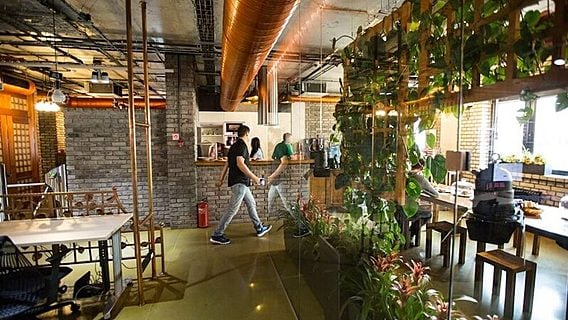
Within just 5 years, the Israeli social casino games developer Playtika has managed to grow by 15 times and turned into the market leader with the 1,300-strong staff and 27 percent share of the worldwide market for social and mobile casino games. Playtika’s Belarusian office plays one of the key roles in the company’s development strategy, dev.by reports.

Belarus-Israel game dev
By 2012, Playtika had already operated four offices in Tel-Aviv and Ukraine. According to Siarhei Pratasouski, head of Playtika’s Minsk office, the decision to launch in Belarus had a simple rationale: the country had strong software development talent pool, providing ample opportunities to recruit a “great team” for a reasonable price.
In a way, Israelis had already tested the ground with another Belarus-established game developer in the online casino segment. In 2012, Teddy Sagi, a London-based Israeli billionaire and founder of Playtech, acquired the Belarusian mobile application developer for the online casino for an undisclosed amount back.
Siarhei Pratasouski calls it “quite impressive” that the Belarusian team leads not just one project — like some other Playtika’s offices do — but five production projects and two inside ones.
Minsk’s office “trusted” role
The first job for the Minsk office was to continue the development of the social online casino Slotomania, Playtika’s main game, which had been transferred from the team in Vinnytsia (Ukraine).
“We totally rewrote the project and transformed it into a cross-platform one, which took us about a year and a half. It was a very challenging and risky project that demanded a thorough approach, allowing for the incorporation of all the platforms while meeting all the KPIs,” Siarhiei Pratasouski says.

According to him, “the Minsk office plays a key role in this technological race by making sure the company is in step with the times and providing it with a safety cushion for the future.”
Today, Slotomania holds a top rank among the slot games segment that are played daily by more than 6 million people in 190 countries.
The Minsk team also develops and supports Playtika’s proprietary Monosyne game engine, which runs many of the company’s products.
In 2013 Caesars Interactive, Playtika’s owner, purchased Buffalo Studio, a high-profit US studio from, running the absolute leader in the bingo domain Bingo Blitz. They decided to relocate the project to Minsk to lower its support costs.
“We have always wanted a project what would be exclusively ours. Finally, we’ve got it,” — Siarhiei Pratasouski commented on the details of the venture, which included developing the software, maintaining the server and the back-office, as well as running a 24/7 production support service.
As a result, only a few key positions remained in California, while the rest of the duties were transferred to the Minsk team of nearly 200 employees.

“No cultural barriers”
Despite the parent company located in Israel, its Belarusian team see “practically no cultural or language barriers” in the communications of the two offices.
“There are a lot of “ours” — the people of Belarusian or Russian origin, or those coming from the Baltics; many Israelis have wives or husbands from here,” the head of the Minsk office explains how this helps mitigate cultural differences.
“You’re working with Israel, but those people have the mentality very similar to ours. This makes things much simpler.”
In terms of day-to-day operations, the Minsk office arranges daily meetings with the Tel Aviv office through video conferencing. Each team has their own internal meetings, and the Belarus-based team leaders keep in regular Skype-communication with Playtika’s Israeli management.

Playtika has a two-week sprint schedule, which results in the release of all of the projects that have been underway on App Store, Google Play, Windows Market and Facebook.
“To be part of the leading team in its domain, whose apps has millions of users and whose profits amount to thousands per minute, creates some really valuable experience,” Siarhei Pratasouski.
“Just take Slotomania: once developers have a new feature idea, they code it and tomorrow already it rocks the gaming community and totally changes the rules of the game for the online gambling industry.”
Speaking about the benefits of adopting Israeli product development model in Belarusian IT sector, Pratasouski is convinced that people in Belarus “are capable of working at the same pace and as successfully.” What has been missed in the country for years, he points out, is the environment to stimulate entrepreneurship and the IT sector development.

Chinese acquisition and its impact
In summer 2016, a consortium of Chinese companies acquired Playtika for $4.4 billion. The head of Playtika’s Belarusian division points out the fact the company changed its ownership doesn’t mean this will affect their operations.
“All in all, Playtika has always been independent of the main owner, and it will continue to be this way. It would be silly to change something in the operations of a company that sets new records in revenues every quarter,” Siarhiei Pratasouski says on the company’s sale.
He admits, however, that under the new ownership new horizons may open up for Playtika in the Asian markets.
Photo: Andrei Davydchyk, dev.by

Релоцировались? Теперь вы можете комментировать без верификации аккаунта.